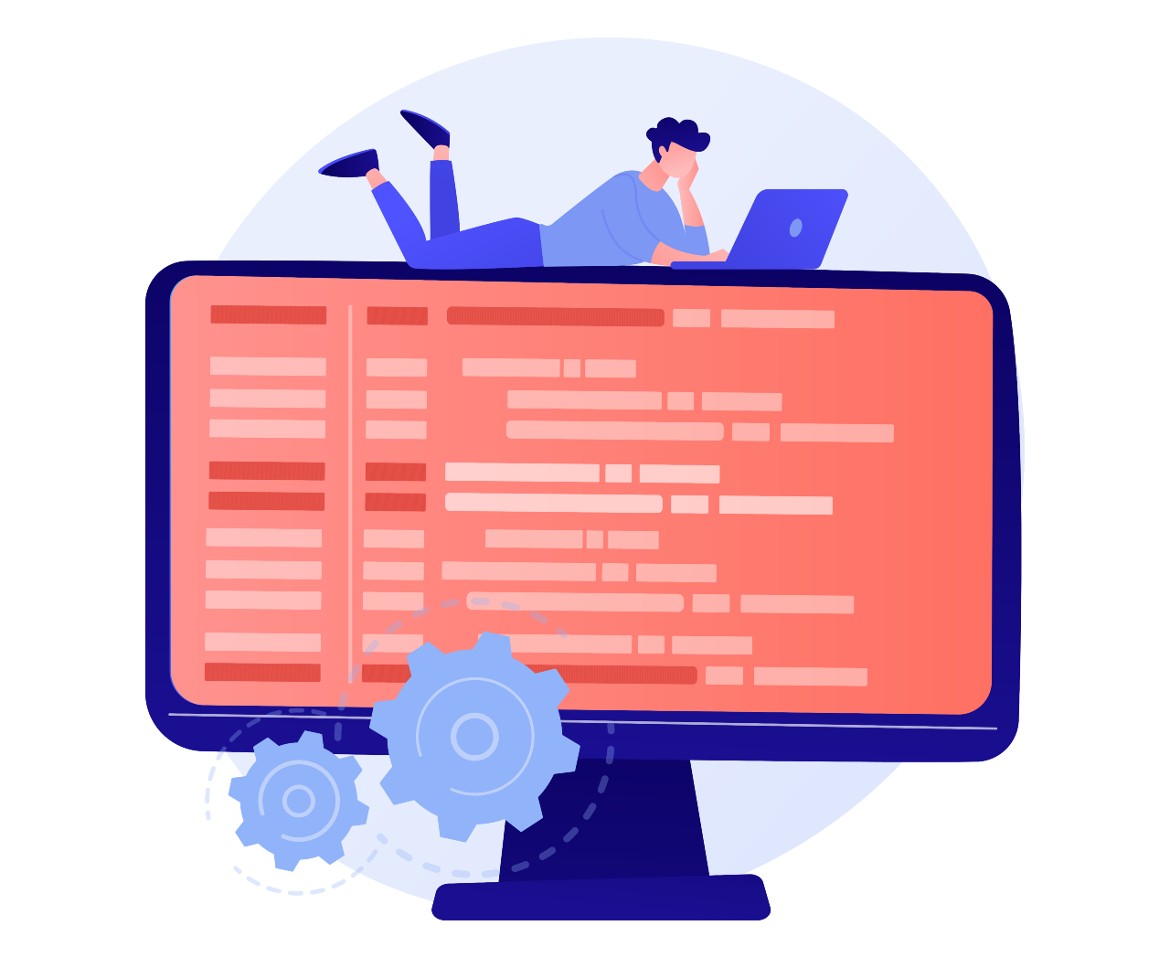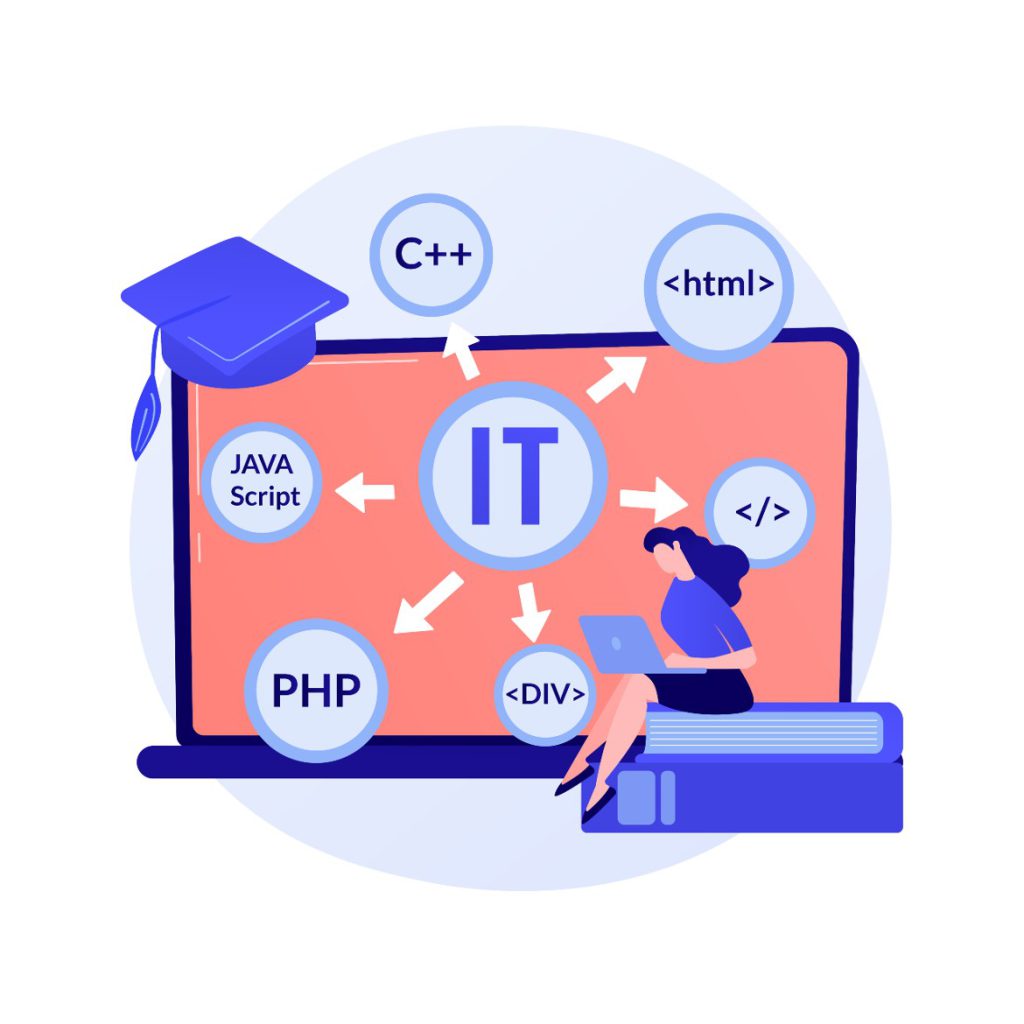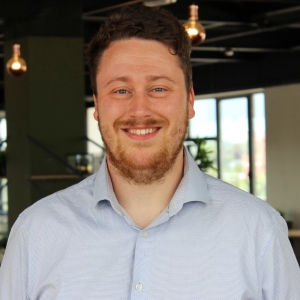The Future of Software Development in Ireland
I believe that the software development industry in Ireland is poised for transformative changes. With advancements in technology and shifting market demands, the future of software development in Ireland is rich with opportunities and challenges. As an experienced recruiter, I’ve seen firsthand how trends evolve and shape the landscape of these jobs. Let’s explore the key trends and emerging technologies that will define the future of software development in Ireland and how you can stay ahead of the curve.
-
Low-Code and No-Code Platforms

Image by vectorjuice on Freepik
Low-code and no-code platforms are transforming software development, allowing non-developers to create applications with minimal coding knowledge. This trend is particularly significant for small and medium-sized enterprises (SMEs) that may not have extensive IT resources. As these platforms become more sophisticated, the demand for traditional software developers might shift towards roles that focus on integrating and extending these platforms. Software development companies in Ireland should be on the lookout for candidates who not only have strong coding skills but also understand how to leverage low-code and no-code platforms to accelerate development cycles.
-
Cybersecurity is a must
With increasing cyber threats, cybersecurity has become a critical aspect of software development. Future software engineers will need to have a robust understanding of secure coding practices, threat modelling, and incident response. As the importance of cybersecurity grows, it will become a core competency rather than a specialised skill.
During screenings, I like to assess candidates’ cybersecurity knowledge through scenario-based questions. I’d recommend asking candidates how they would handle specific security threats and what measures they would take to safeguard applications.
-
Edge Computing

Image by vectorjuice on Freepik
Edge computing is a way of processing data closer to where it’s generated rather than sending it all the way to a central data centre. Think of it like this:
Imagine you have a smart thermostat in your home. Instead of sending data about the temperature to a distant cloud server for processing, the thermostat processes the data right there in your house. This local processing means it can adjust the temperature instantly, without waiting for information to travel back and forth.
In essence, edge computing reduces the time (latency) it takes for data to be processed and actions to be taken, which is especially important for applications that require real-time responses, like self-driving cars, smart cities, and industrial automation. By bringing computing power closer to the “edge” of the network, where data is created, it makes everything faster and more efficient.
Edge computing is transforming how data is processed and analysed, bringing computing closer to the data source. This trend is driven by the need for real-time processing and the growth of Internet of Things (IoT) devices. In my experience, candidates with experience in distributed systems and real-time data processing are highly sought after. Employment agencies and IT companies should prioritise finding professionals who are adept at designing and implementing edge computing solutions.
-
Remote Working
The shift towards remote work, accelerated by the COVID-19 pandemic, is here to stay. Remote work offers flexibility and access to a global talent pool, but it also requires new approaches to team collaboration and project management. Tools and practices that support remote work will continue to evolve, shaping the future of software development.
If you are recruiting in Dublin or across Ireland you should focus on candidates who demonstrate strong communication skills and the ability to work effectively in remote distributed teams. It’s also beneficial to look for experience with remote collaboration tools and methodologies such as Around, Slack, Trello, Notion and Scrum.
-
Continuous Learning and Adaptability

The rapid pace of technological change means that continuous learning and adaptability are more important than ever. The most successful software developers will be those who are committed to lifelong learning and can quickly adapt to new technologies and methodologies. When evaluating candidates, I always look for a demonstrated commitment to professional development. This can be through advanced degrees, certifications, or participation in professional communities and conferences.
-
Artificial Intelligence (AI) in Software Development
AI is not just a domain for specialists; it’s becoming integral to the software development process itself. AI-driven tools are being used for code generation, debugging, and optimising performance. Developers of the future will need to work alongside AI, leveraging these tools to enhance productivity and innovation. I’d advise hiring managers to seek candidates who are comfortable with AI and machine learning technologies.
The integration of AI is not only enhancing productivity but also fostering innovation by allowing developers to focus on more complex and creative aspects of their work. From AI-powered code assistants to advanced machine learning algorithms that drive decision-making processes, the impact of AI on software development is outstanding. Practical experience with AI tools such as GitHub Copilot can be a significant differentiator in the competitive landscape of software development jobs in Ireland.
In my experience, candidates who are proficient in AI technologies and have practical experience with AI frameworks like TensorFlow or PyTorch stand out significantly in the Irish market. I’d recommend that hiring managers actively seek out these candidates and consider how their AI expertise can be leveraged to drive innovation within their teams. I think it’s crucial to highlight the growing importance of AI in software development jobs and to guide candidates towards continuous learning in this area. By doing so, we can ensure that we are building a workforce that is not only skilled but also future-ready.
The future of software development in Ireland is both exciting and challenging, with new technologies and trends reshaping the industry. For hiring managers and software developers across Ireland, staying ahead of these changes is crucial. By focusing on emerging skills and fostering continuous learning, we can ensure that we are attracting and retaining top talent in this dynamic field.
If you’re looking to navigate this evolving landscape and find the best software engineering talent, visit our hire talent page now. If you’d like to discuss emerging technologies further you can connect with me here.

